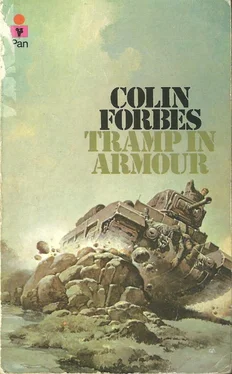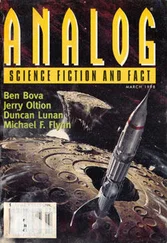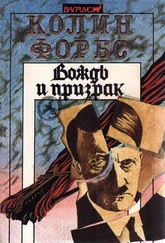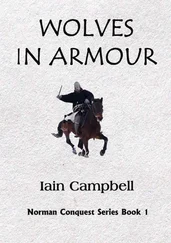The driver was hunched over the wheel, head and shoulders drenched in blood. The passenger-seat door was open and the officer lay in the roadway on his back, capless, arms outstretched, staring up at the stars. A few feet from his right hand lay a half-open briefcase, the case he had clutched so firmly to his chest when the emergency had arisen. Barnes checked the officer, whose chest was torn with the bullets where the arc had moved across him and lifted one shoulder. He was a major, a dead major. Picking up the briefcase, Barnes took out a paper while Colburn examined the rear seat; holding the paper in front of the headlights he grunted.
‘This is your pigeon. You said you could speak German, Colburn, can you read it as well? This looks as though it could be interesting.’
‘Let me have a look.’
He scanned the lines briefly and then looked up, his face very serious.
‘This is interesting. It’s a battle order and this copy is for some Advanced Headquarters. Let me check it again to make sure I’ve got it right.’
‘This staff car can tell us something;’ said Barnes thoughtfully. ‘They can’t possibly be expecting anyone coming up from this direction or else it wouldn’t be travelling without escort. We may surprise the bastards yet.’
‘This document [6] Not only sergeants are lucky with documents. Twenty-four hours earlier, Lt-Gen Sir Alan Brooke, commander 11 Corps BEF, was handed a battle order captured from a German staff car which warned of an imminent offensive by Gen von Bock’s Army Group B – just in time for him to move more troops into the threatened area.
is going to surprise you, Barnes. The German 14th Panzer Division is going to attack Dunkirk at dawn. They’ve found some secret road to the port just under the water – the whole area must be flooded along that part of the front as far as I can gather. Apparently this road is built up from the surrounding countryside so it’s only a few inches under the floods.’
‘Does it give the start-line for the attack?’
‘Yes, the funny thing is it’s Jacques’ home town – the attack is being launched from Lemont at 04.00 hours.’
Barnes knew that at the eleventh hour he had found his worthwhile objective. He checked his watch. 12.25 am.
‘We’ll forget about Calais,’ he said. ‘Jacques is going to take us home.’
‘It gives the name of the general who’s leading the attack.’
‘Really?’ Barnes wasn’t too interested as they hurried back to the transporter.
‘Yes. A General Heinrich Storch.’
Storch jumped out of the staff car, checked his watch, briefly acknowledged the salute of the waiting officer, walked down the hedge-lined lane on the outskirts of Lemont. 12.45 AM. Less than four hours to dawn. The lights of an armoured car at the end of the lane showed him the way while beyond the hedge on his left, to the north, the light of the moon shone down over the flooded areas, a vast lake which might have been the sea. When he reached the car he stopped and turned to the officer who had followed him.
‘So here it is, Keller – the start line of the final advance. It doesn’t look much from here, does it?’
The lights of the armoured car beamed north across a flooded field below the level of the lane. Water stretched as far as the eye could see towards Dunkirk, but standing up above the surface of the lake ran a double line of six-foot poles like slim telegraph poles immersed by the inundation.
‘Keller, how far do the marker posts stretch?’
‘Ten kilometres, sir. We felt it inadvisable to mark the passage any further at the moment.’
‘Quite right, Keller, quite right.’
Storch paused, slapping his gloves slowly against the side of his leg. He was in an excellent humour and when this mood took him he liked to show his subordinates that their general was capable of a certain light-hearted touch.
‘So, Keller, you are telling me that between those posts lies the road to Dunkirk – that we do not have to possess supernatural powers like Christ to walk upon the waters?’
Keller, a religious man, as Storch knew well, blinked and stirred uneasily. What could be in Storch’s mind now? He kept his face expressionless and answered with admirable brevity.
‘Yes, sir.’
Keller waited anxiously. He was never quite sure how to deal with the situation when Storch talked like this for it was closely akin to another mood which could be the precursor to an almighty row. He said nothing further and waited while the general walked to the front of the armoured car, standing to gaze for a moment through the gap in the hedge. Then, without warning, Storch marched forward between the posts, his boots splashing up water but never sinking more than six inches below the waterline. He walked on and on, almost out of sight, and then came back again, deliberately kicking up great spurts of water like a small child on its first day by the sea. Reaching the armoured car, he paused and lifted his night glasses to look the other way, focusing his gaze to the south where a line of heavy tanks was drawn up along the extension of the road on higher ground. Beyond the tanks he could see the small airfield which was serving as the main tank laager and beyond the groups of small dark shapes loomed the hangar, the main ammunition dump. Meyer had once again complained that everything was crammed into too confined an area but the floods had dictated that. At that moment Keller had the misfortune to say the wrong thing.
‘I hear, sir, that the main dump is very close to the laager.’
‘You’d like to move it, Keller?’ Storch inquired.
‘No, sir. I just thought… that is… Colonel Meyer…’
‘Meyer has been here recently?’
‘Only for a few minutes – to check the water level…’
‘Really, Keller, it is most fortunate for you that I have only wet my boots. Had the water risen to my thighs we might well have had to look for your replacement. Till 04.00 hours, Keller!’
Barnes rubbed his eyes and checked his watch. 12.45 AM. The tank rumbled along the side road, its lights full on, the tracks churning round at top speed. In the turret beside him Jacques warned that they were approaching the southern outskirts of Lemont. The French lad knew exactly where he was and now he felt strangely excited as the road he had known since boyhood rolled past under them. He had chosen a roundabout route to enter the village and Barnes had asked him to find a place where they could park Bert safely for a short time. He thought he knew just the place.
Inside the tank Colburn sat behind the two-pounder in Davis’ old seat. A loaded machine-pistol lay across his lap and already he was becoming accustomed to the small metal room, the gentle sway of the hull, the endless grumble of the tracks. He missed the fresh air of five thousand feet up but at least here he had solid ground under his body. Oddly enough, now that they were so close to the battle zone the thunder of the guns had died, as though preserving their energies – and their ammunition – for one final effort when day came. And daylight was close now. But he was on edge because he had nothing definite to do, and in this respect he envied Reynolds. The driver in the nose of the tank had his head projecting above the hatch and gazed stolidly forward. His hands held the steering levers stiffly because his arms felt as though they were on fire and even the slightest movement increased the pain. They were almost there, Barnes had said, and Reynolds was anxious to get it over with. Now that they were so close to the Allied lines and that Dover was just across the water he found himself thinking of England and home. With a bit of luck they’d soon be there. He’d be able to get some leave and go back to Peckham. A pint of bitter at The Grey Horse. It made him feel thirsty and then he forgot about it as Barnes’ voice came down the intercom with a fresh instruction.
Читать дальше








![Невилл Форбс - История Балкан [Болгария, Сербия, Греция, Румыния, Турция от становления государства до Первой мировой войны] [litres]](/books/390301/nevill-forbs-istoriya-balkan-bolgariya-serbiya-gre-thumb.webp)


